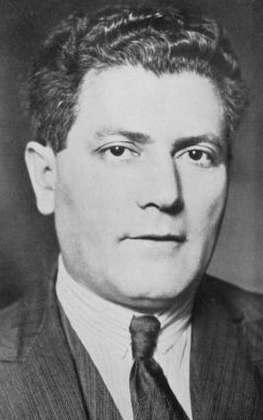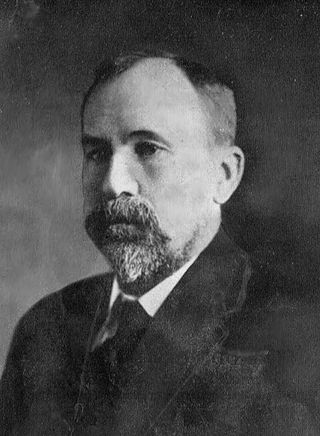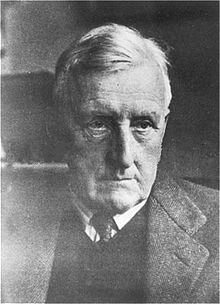Parapsychology is a field of research that studies a number of ostensible paranormal phenomena, including telepathy, precognition, clairvoyance, psychokinesis, near-death experiences, reincarnation, and apparitional experiences.

The Society for Psychical Research (SPR) is a nonprofit organisation in the United Kingdom. Its stated purpose is to understand events and abilities commonly described as psychic or paranormal. It describes itself as the "first society to conduct organised scholarly research into human experiences that challenge contemporary scientific models." It does not, however, since its inception in 1882, hold any corporate opinions: SPR members assert a variety of beliefs with regard to the nature of the phenomena studied.

Telepathy is the purported vicarious transmission of information from one person's mind to another's without using any known human sensory channels or physical interaction. The term was first coined in 1882 by the classical scholar Frederic W. H. Myers, a founder of the Society for Psychical Research (SPR), and has remained more popular than the earlier expression thought-transference.

Frederic William Henry Myers was a British poet, classicist, philologist, and a founder of the Society for Psychical Research. Myers' work on psychical research and his ideas about a "subliminal self" were influential in his time, but have not been accepted by the scientific community. However, in 2007 a team of cognitive scientists at University of Virginia School of Medicine, led by Edward F. Kelly published a major empirical-theoretical work, Irreducible Mind, citing various empirical evidence that they think broadly corroborates Myer's conception of human self and its survival of bodily death.

Frank Podmore was an English author and founding member of the Fabian Society. He is best known as an influential member of the Society for Psychical Research and for his sceptical writings on spiritualism.

Mediumship is the practice of purportedly mediating communication between familiar spirits or spirits of the dead and living human beings. Practitioners are known as "mediums" or "spirit mediums". There are different types of mediumship or spirit channelling, including séance tables, trance, and ouija.
Henry Habberley Price, usually cited as H. H. Price, was a Welsh philosopher, known for his work on the philosophy of perception. He also wrote on parapsychology.
Raynor Carey Johnson was an English-born Australian parapsychologist, physicist and author.

Henry Addington Bayley Bruce, best known as H. Addington Bruce was an American journalist and author of psychology books.
In parapsychology, an apparitional experience is an anomalous experience characterized by the apparent perception of either a living being or an inanimate object without there being any material stimulus for such a perception.

Ectoplasm is a term used in spiritualism to denote a substance or spiritual energy "exteriorized" by physical mediums. It was coined in 1894 by psychical researcher Charles Richet. Although the term is widespread in popular culture, there is no scientific evidence that ectoplasm exists and many purported examples were exposed as hoaxes fashioned from cheesecloth, gauze or other natural substances.
The American Society for Psychical Research (ASPR) is the oldest psychical research organization in the United States dedicated to parapsychology. It maintains offices and a library, in New York City, which are open to both members and the general public. The society has an open membership, anyone with an interest in psychical research is invited to join. It maintains a website; and publishes the quarterly Journal of the American Society for Psychical Research.

Walter Whately Carington was a British parapsychologist. His name, originally Walter Whately Smith, was changed in 1933.

Nandor Fodor was a British and American parapsychologist, psychoanalyst, author and journalist of Hungarian origin.

Leonora Piper was a famous American trance medium in the area of Spiritualism. Piper was the subject of intense interest and investigation by American and British psychic research associations during the early 20th century, most notably William James and the Society for Psychical Research.

Eileen Jeanette Vancho Lyttle Garrett was an Irish medium and parapsychologist. Garrett's alleged psychic abilities were tested in the 1930s by Joseph Rhine and others. Rhine claimed that she had genuine psychic abilities, but subsequent studies were unable to replicate his results, and Garrett's abilities were later shown to be consistent with chance guessing. Garrett elicited controversy after the R101 crash, when she held a series of séances at the National Laboratory of Psychical Research claiming to be in contact with victims of the disaster. John Booth, and others, investigated her claims, and found them to be valueless, easily explainable, or the result of fraud.

Walter Franklin Prince was an American parapsychologist and founder of the Boston Society for Psychical Research in Boston.
In psychology, anomalistic psychology is the study of human behaviour and experience connected with what is often called the paranormal, with few assumptions made about the validity of the reported phenomena.

James Hervey Hyslop, Ph.D., LL.D, was an American psychical researcher, psychologist, and professor of ethics and logic at Columbia University. He was one of the first American psychologists to connect psychology with psychic phenomena. In 1906 he helped reorganize the American Society for Psychical Research (ASPR) in New York City and served as the secretary-treasurer for the organization until his death.
Alan Gauld is a British parapsychologist, psychologist and spiritualist writer best known for his research on the history of hypnotism and mediumship.













